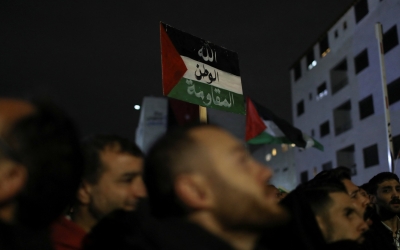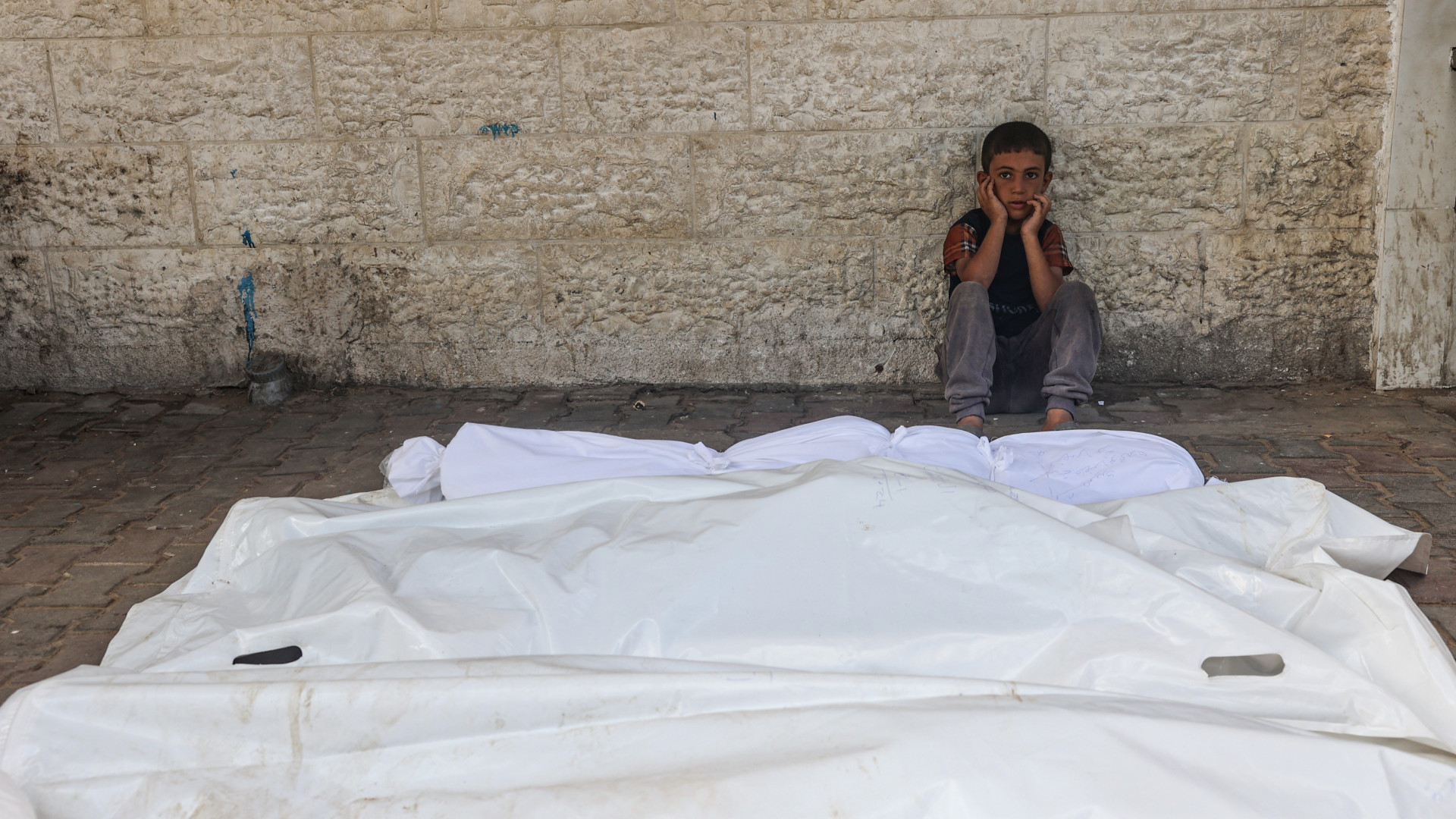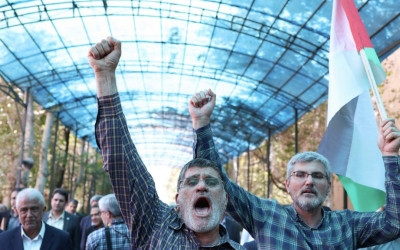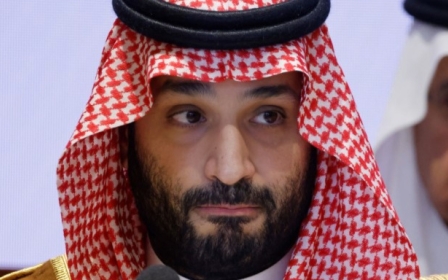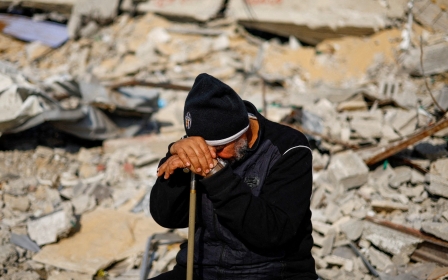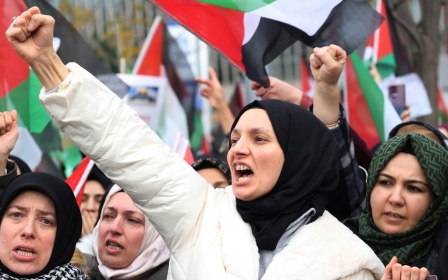Why Arab regimes' betrayal of Palestine may come back to haunt them
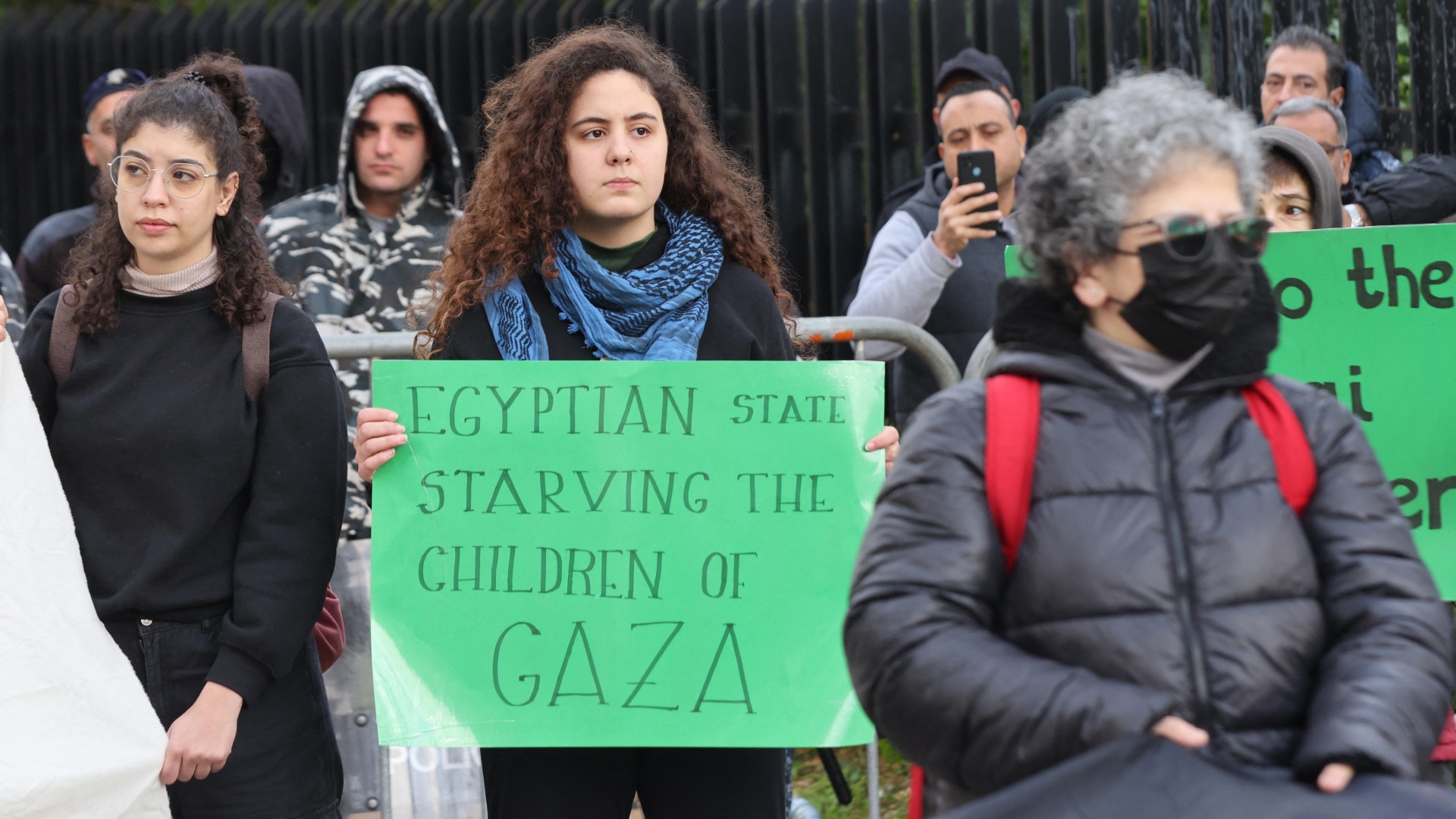
On 2 August, funeral prayers for Ismail Haniyeh drew thousands to Doha's Imam Muhammad ibn Abd al-Wahhab Mosque to honour the assassinated Hamas leader.
Among them were dozens of emissaries from across the Arab and Muslim worlds who travelled to Qatar to express their solidarity with the Palestinian people amid Israel's ongoing genocide in Gaza that has inflamed much of the region.
Notably absent from the funeral were representatives from the governments of Jordan, Saudi Arabia, the United Arab Emirates, Bahrain, Egypt and Morocco.
Despite their critical policy differences, similar occasions in the past, such as the funeral of the late Palestinian leader Yasser Arafat, brought together Arab leaders in a symbolic display of unity and collective mourning.
For all their glaring contradictions, Arab states previously found it necessary to pay heed to the question of Palestinian liberation in the eyes of their populations, though more often with words than deeds.
New MEE newsletter: Jerusalem Dispatch
Sign up to get the latest insights and analysis on Israel-Palestine, alongside Turkey Unpacked and other MEE newsletters
However, since their violent suppression of the Arab uprisings, authoritarian regimes no longer need to legitimise their rule through declared support for Palestine. They now have a free hand to pursue deeply unpopular policies, including normalisation with Israel.
So, the absences in Doha are just the latest example of a shift in these regimes' style and substance that was more than a decade in the making and has become more pronounced since 7 October.
For all their contradictions, Arab states previously found it necessary to pay heed to the question of Palestinian liberation in the eyes of their populations
Indeed, several Arab states have offered Israel significant support since it unleashed its assault on Gaza. This has brought into focus a long-developing regional picture of how these states have been enlisted in the US-Israeli security order.
Some have gone as far as mobilising their military capabilities to intercept retaliatory strikes by Iran and regional militia,s and rerouting goods through alternate trade routes in response to the Houthis' Red Sea blockade against Israeli shipping.
For its part, Egypt has faithfully patrolled its border with Gaza in close coordination with Israel, further compounding the unprecedented humanitarian catastrophe unfolding in the besieged strip.
In prior eras, the sight of Arab regimes acting in open alliance with Israel would have been unimaginable. This raises questions about how such a reality has come to be and what impact the current moment will have on these alliances going forward.
Palestine exception
Historically, the question of Palestine offered a convenient lever for Arab authoritarian rulers to establish their legitimacy on the one hand and channel popular discontent on the other.
Forming a core component of modern Arab national identity, from the 1950s onwards Palestinian liberation was at the heart of President Gamal Abdel Nasser's Arab nationalist project in Egypt and the Baath Party's platform as it rose to power in Syria and Iraq.
Gulf monarchs frequently raised the banner of Palestine to establish their own post-colonial legitimacy, enhance their regional profile and elicit the acquiescence of their populations.
Follow Middle East Eye's live coverage of the Israel-Palestine war
Regimes that were notoriously intolerant of popular mobilisation made exceptions for Palestine.
They allowed for mass protests, the establishment of NGOs and aid missions, and popular cultural expressions in support of Palestinians to flourish, even while showing no tolerance for similar activity on the domestic political front.
Political scientists have long theorised that these regimes' "authoritarian durability" was owed in part to their ability to distract and deflect popular discontent. In this case, Palestine frequently served as a useful pressure release valve.
Even as states like Egypt and Jordan signed peace treaties with Israel, their rulers nonetheless felt the need to continue their rhetorical calls for Palestinian liberation.
They took strong (if mostly symbolic) measures in response to widespread outrage at Zionist colonial violence, including periodically cutting off diplomatic relations and severely limiting economic and cultural exchanges with Israel.
What was once a reliable formula was completely upended by the Arab uprisings and their aftermath.
In the wake of the popular protests that erupted in 2010 and led to the weakening or outright collapse of a number of regimes, a counter-revolutionary wave swept the region. It was exhibited most notably in the 2013 military coup that toppled Egypt's tenuous democratic transition and installed Abdel Fattah el-Sisi as the autocratic ruler of the largest Arab state.
Tunisia also witnessed an abrupt end to its democratic transition when President Kais Saied dismissed the elected parliament and suspended the constitution in 2021.
Meanwhile, post-authoritarian transitions in Yemen, Libya and Sudan became mired in devastating civil wars sponsored by regional powers. At the same time, mass protests in Bahrain were crushed by forces sent by its Gulf neighbours. Syria's revolutionary movement succumbed to foreign interventions, leading to the country's destruction and isolation.
Moral bankruptcy
The Arab uprisings, among other things, proved that in previous decades, Palestine was not simply a distraction for Arab societies. Instead, it was a site of mass political education in its own right, one in which alternative political narratives and identities were forged in defiance of those advanced by rulers.
The struggle for Palestine had exposed the structural weaknesses and moral bankruptcy of Arab regimes that allowed for the success and expansion of the Zionist project in their midst while they continuously edged closer to it in terms of their strategic realignment.
Consequently, the impact of Israel's genocidal war in Palestine on the wider region cannot be separated from the broader political and socioeconomic developments of the last decade.
This era has been largely defined by aggressive attempts to reconsolidate an authoritarian regional order, mainly directed by the governments of Saudi Arabia and the UAE.
Along with the deployment of their militaries and proxy forces, they have also shouldered a large share of the economic burden to stabilise floundering states and turn the page on the mass mobilisation driven by popular unrest that marked the prior period.
In doing so, these would-be regional powers coordinated closely with successive US administrations that pursued "stability" in the form of bolstering repressive dictatorships and leaving the region in reliable hands as the US sought to reassert itself elsewhere, principally in its ongoing rivalries with Russia and China.
The new ruling bargain in much of the Arab region is one of violent, coercive power, as seen through the mass imprisonment of political opponents, the silencing of dissent, the tightening of control over media and the securitisation of society.
No longer needing to pay lip service to the issue of Palestine, these regimes inched ever closer to a US-Israeli vision of regional security that would enlist a number of states in the struggle against Iran and its allies.
A key outcome of this process was the so-called Abraham Accords, which normalised relations between Israel and several Arab states.
As one regime after another lined up to embrace the settler colony, it became clear for all to see that the traditional Arab position that normalisation would not occur until Palestinian self-determination was achieved represented nothing more than empty words from a bygone era.
Shaky ground
On the heels of Donald Trump's normalisation deals with the UAE, Bahrain, Morocco and Sudan, US President Joe Biden's administration believed it could deliver to Israel the biggest prize of all: normalisation with Saudi Arabia, which was poised to usher in a new "twin pillars" policy. It was a vision of the Middle East in which Israel and Saudi Arabia would be militarily and economically empowered to dominate the region jointly for the foreseeable future.
Israeli Prime Minister Benjamin Netanyahu's address to the United Nations General Assembly last September boasted of a "corridor of peace and prosperity" connecting Asia and Europe from the UAE to Israel.
A similar effort to prop up Saudi Arabia and Iran as the region's dual powers during the 1970s collapsed with the fall of the shah during the 1979 Iranian Revolution. It would seem this latest version of the policy has been built on even shakier ground.
Nevertheless, by the beginning of last October, the question of Palestine had been completely purged from Arab politics.
Millions of Palestinians were essentially doomed to endure the miseries of life in the concentration camp of Gaza or the apartheid and piecemeal ethnic cleansing of the West Bank and Jerusalem, while generations of refugees saw no end in sight to their forced exile.
The events of 7 October and the genocidal war that followed have forced Palestine back to the top of the regional agenda, much to the frustration of the US, Israel and their Arab partners.
Betrayal
The Arab states that have played their part well by providing Israel with crucial military and economic support now face a far greater challenge in their struggle for internal legitimacy than they did prior to this war.
The gap between Arab rulers and their populations has never been wider, an unsustainable situation in the long term
Recent events have reopened questions that had long been buried regarding the prospects for popular mobilisation, which the region's autocrats have answered with yet more repression.
In late October, a rare and carefully stage-managed protest march in Cairo in support of Palestinians broke off from the regime-approved path and attempted to enter Tahrir Square, where security forces swiftly broke it up.
The Sisi regime has not allowed any protests to take place since.
In several Gulf states, the waving of Palestinian flags and wearing of keffiyehs have been strictly banned. Even prayers offered in support of Palestinians have been suppressed by Saudi police in Mecca.
Viral videos of young Moroccans enjoying the Israeli nightlife and praising their hosts sparked outrage, with many Moroccans holding the regime responsible for the callous display.
The fact of the matter is that the gap between Arab rulers and their populations has never been wider, a situation that is clearly unsustainable in the long term.
For all the discussions about the liberal order being upended by the unwavering western support for Israel's genocide, it should be noted that this moment has exposed the Arab regimes as well.
If the liberal order is shaken to its core globally, it will have massive reverberations in the region, particularly as socioeconomic conditions worsen, compounding the sense of frustration and betrayal.
'Generation-defining' moment
This moment has also brought to the surface questions surrounding the role that resistance movements are poised to play in the future of the region.
Arab regimes that have gone to great lengths to impose a deeply sectarianised vision of regional politics for years are now at a loss as to how to confront these groups' newfound popularity.
Lebanon's Hezbollah and Yemen's Ansar Allah are widely viewed as the only regional actors willing to challenge Israel's military aggression.
Indeed, the calculus that informed the decisions of the region's ruling elites has been challenged like never before, resulting in a more precarious and combustible situation in the years ahead.
Their only strategy, it seems, is to bide their time in the hopes that the pre-7 October order (or some version of it) can be restored in the aftermath of the current Israeli onslaught.
But even if Saudi Arabia follows through on its plans for normalisation, it would be allying itself with a vastly weakened Israeli state whose alleged military invincibility and diplomatic impunity have suffered unprecedented defeats. The US, meanwhile, will encounter far more resistance overseeing this alliance following its critical role in arming Israel and shielding it from accountability.
Moreover, given the historically unprecedented death and destruction that has unfolded in Gaza during the past 10 months, Palestine will not disappear from the region's collective consciousness, even if it has been erased from Saudi textbooks.
Questions surrounding rebuilding and resettlement, as well as matters of political governance and tending to the needs of the survivors, will demand the attention of populations across the region.
Most significantly, however, this is a generation-defining moment and will not be forgotten.
While past uprisings and their causes may have been buried beneath the weight of violent crackdowns, civil wars and authoritarian resurgence, the Arab youth of today are witnesses to this genocide and the role of their ruling elites within it.
That is sure to inform their core beliefs and political choices for years to come.
The views expressed in this article belong to the author and do not necessarily reflect the editorial policy of Middle East Eye.
Middle East Eye delivers independent and unrivalled coverage and analysis of the Middle East, North Africa and beyond. To learn more about republishing this content and the associated fees, please fill out this form. More about MEE can be found here.



